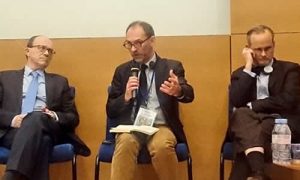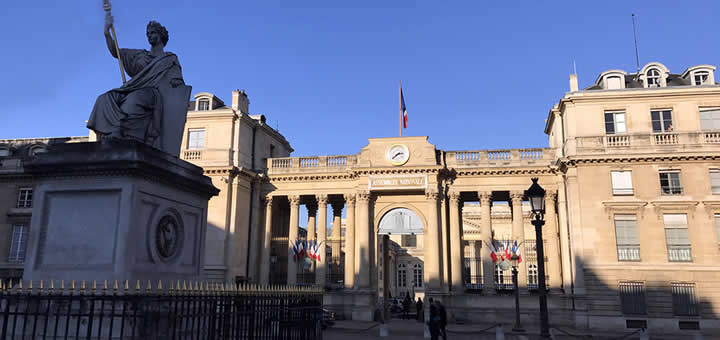 We have lost our connection. That promised fluidity the internet offered us has hardened. Twenty years ago, even ten, we saw a space to connect, share and expand our horizons, we saw palpable benefits rendered by the distanciation of time and space. Yet, even as we started to understand how online discourse functioned, we saw that people didn’t expand. Too often they contracted.
We have lost our connection. That promised fluidity the internet offered us has hardened. Twenty years ago, even ten, we saw a space to connect, share and expand our horizons, we saw palpable benefits rendered by the distanciation of time and space. Yet, even as we started to understand how online discourse functioned, we saw that people didn’t expand. Too often they contracted.
Too often they clustered around like-minds; ‘people like us’. And over time the media, the new media mongers of hate and certain politicians have exploited this to create a world that, right now, feels more failed, fractured and disturbing than I can remember.
Trust is failing under a barrage of reactive populism and evidence-based rational debate has given way to shouting, and this has significant implications for the future of democracy. This isn’t about right and wrong (or right and left); it’s not for or against Brexit or Trump or anything else. Simply that, if you are siloed in a pit of self-perpetuating confirmation without hearing informed critique from the other side, you are the poorer for it. The more hateful and embittered the lens you see the world through, the more so. And we are all the poorer for it. Is this is what we’ve created? We have lost many of our shared narratives; they have splintered into a web of a billion lies, half-truths and uncritical rhetoric.
Society is not static, of course. It has changed many times and will change again. Our parliaments and democratic institutions are not static either, but their very nature, culture and history means that they adapt to the changes around them more slowly. They are, in too many cases, running to keep up with yesterday. They are struggling for relevance. For the parliaments of the future – actually, for the parliaments of today – openness is not optional, it has to become the baseline. An open parliament must be the default position from where our shared conversations start. Parliaments are there to serve the people. It is not only their members who must be answerable to the citizenry but their data that must be accessible to them; to us.
Data belongs to all of us yet all too often we remain frustrated by gate-keepers. Whilst the place we are in today is depressing, I don’t believe all is lost. So long as parliaments can see that they must change to remain relevant and to regain trust. So long as they can embrace new ways of working with citizens and civil society.
We need open legislative data, but the focus must not be on the data per se. Data has no value of itself; we must create value through using it well and with purpose. As sociologist William Bruce Cameron noted, “not everything that can be counted counts, and not everything that counts can be counted”. Too often the focus is on how much data we share, not on how effectively we share it. Not how effectively others are able to use it. We can see from the experience of many parliaments (and other public services) around the world, ‘build it and they will come’ is not a strategy for a sustainable, stronger democracy. Build it, yes, but build the relationships with people who can add real value to the data, provide high-quality education in both information and political literacy. Above all, to be fit for purpose our parliaments must be about so much more than open data. Openness must be embedded in the culture and process, woven into the very fabric of the institution.
This is the background to a speech I gave in the French Senate in December 2016
